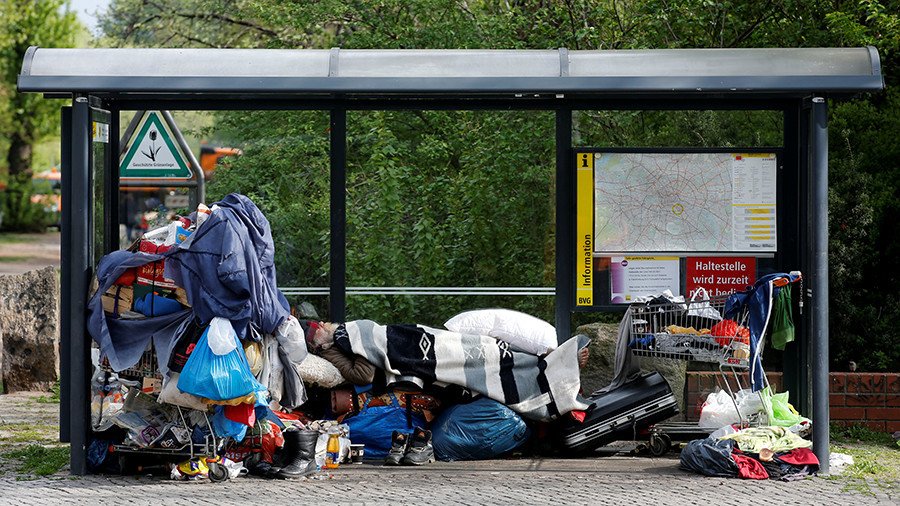Germany's homeless population explodes as refugee policy backfires

The latest report published by Germany’s Federal Association for Assistance for the Homeless shows the number of people living on the streets has surged by 33 percent in the two years through 2016.
“In 2016 an estimated 52,000 people were living on German streets, an increase of a third on the 39,000 people who were living rough in 2014,” the report says.
‘Humiliated, isolated’: Over 1.25mn destitute in 21st century Britain https://t.co/hKHzFuumDnpic.twitter.com/ngNzohl3as
— RT UK (@RTUKnews) April 27, 2016
The data also shows that the number of people who don’t have their own home last year totaled 422,000 compared 335,000 two years before. Most of them have to live in collective accommodation or share apartments with friends, partners or family.
The head of the association Thomas Specht cites continuously increasing rents, sluggish wages as well as restricted housing supply among the key reasons behind the figures. The number of council flats had decreased by 60 percent to 1.2 million since 1990, as local councils had to sell off many properties to private investors.
“The authorities have lost control of the stock of affordable housing,” Specht said, as quoted by The Local Germany.
500k+ homeless in US, numbers rise in New York, other big cities https://t.co/WoVMrlJFLEpic.twitter.com/g4FoCmw0s8
— RT (@RT_com) November 20, 2015
“The numbers presented today on homelessness are shocking. In our view this proves that ever more people are unable to pay their rents because of low wages and over-indebtedness,” said Ulrike Mascher, President of the social campaign group VdK.
Some politicians tend to blame the so-called open door policy, implemented by the current government, headed by Angela Merkel. The number of refugees from Syria, Libya, Afghanistan and other war-torn countries reportedly increased five-fold during 2015.
Merkel agrees to limit number of refugees entering Germany https://t.co/4iD1WSHrlypic.twitter.com/SVsRBsGXs8
— RT (@RT_com) October 9, 2017
However, Specht pointed out that although the influx of migrants had some impact on facilities for the homeless, it couldn’t be the only factor.
Last month, Angela Merkel’s CDU and its Bavarian CSU sister party agreed to limit the number of people allowed to enter Germany for humanitarian reasons to 200,000 annually with migrant workers not to be affected by the plan.












